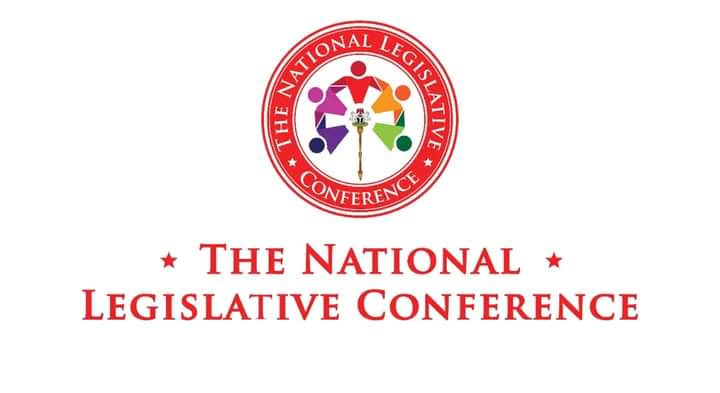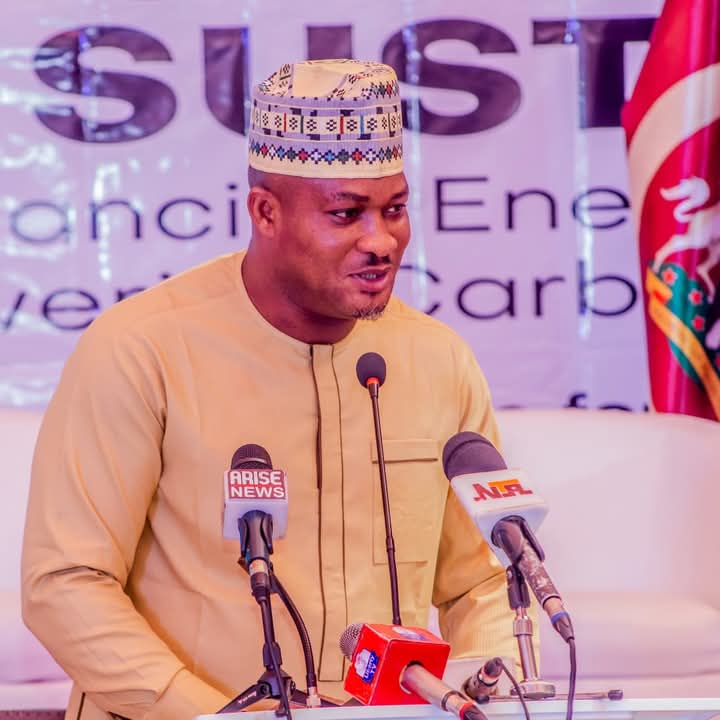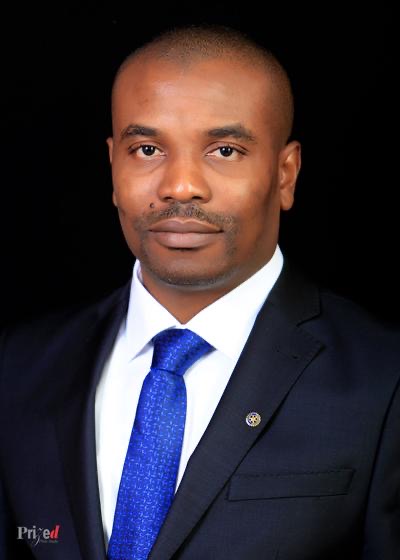The transition to Compressed Natural Gas (CNG) has become a focal point of discussion across various sectors in Nigeria. This evolving agenda has sparked diverse debates regarding its benefits and challenges, leading to speculation about what is truly at stake.

In an effort to contribute to this important dialogue, the HallowMace Foundation Africa, in collaboration with the National Institute for Legislative and Democratic Studies (NILDS), organized the 6th edition of its National Legislative Conference.
This year’s conference, themed “Legislative Pathways to a Sustainable Future: Enhancing Energy Security, Reducing Transportation Costs, Lowering Carbon Emissions through CNG Policy,” attracted lawmakers, civil society representatives, and stakeholders from across the country.

In his welcome address, Ambassador Anderson Osiebe, convener of the conference, expressed gratitude to all participants for their involvement and reaffirmed the foundation’s commitment to advocating for democracy with a focus on strengthening legislative institutions. He emphasized that this year’s theme is particularly relevant as Nigeria seeks sustainable development, highlighting the potential of CNG as a transformative tool for achieving a secure, cost-effective, and environmentally conscious future.
Ambassador Chibuzo Okereke, the Co-Covener, also addressed the gathering, commending NILDS for its investment in the legislative space and praising the National Orientation Agency (NOA) for its effective communication efforts. He stressed the importance of transparency and accountability in CNG policies as a driving force behind the conference and invited participants to contribute ideas on legislative interventions that could be implemented.
Presentations
In his keynote address, Professor Abubakar O. Suleiman, Director General of NILDS, described the theme as one that resonates with everyone since it impacts all aspects of society. He commended HallowMace Foundation for its commitment to addressing critical national issues and highlighted the need for thorough research and legislative backing to ensure effective implementation of CNG policies. He cautioned that any policy lacking substantial research is likely to fail, urging legislators to sustain advocacy and public enlightenment on the CNG discourse.
Professor Suleiman further articulated that building a sustainable future requires measures that allow current generations to meet their needs without compromising the ability of future generations to do the same.
Senator Eyinnaya Abaribe, Chairman of the Senate Committee on Power, presented on “Regulatory Frameworks and Oversight: Ensuring Transparency and Accountability in the CNG Policy.” He called for a critical examination of the transition to CNG, noting that it was prompted by circumstances surrounding fuel subsidy removal. Senator Abaribe outlined ambitious goals for the CNG policy, including the goal of deploying 1,000,000 units, training 2500 technicians who can handle conversion, repairs and other technicalities, having 10,000 Nigerians fully certified in CNG and $250,000,000 to be used for the development of the CNG infrastructure by 2027. Also, the policy was supposed to have deployed 2,000 units by the end of 2024, 500 functioning participants and $75,000,000 by the end of 2024, a target which is still far from being achieved.
He emphasized that the legislature’s role includes advocating for safety measures during this transition while ensuring adequate funding and promoting policies focused on safety and affordability. He concluded by stating that moving toward CNG is not an endpoint but rather a transitional phase toward cleaner energy sources.
In his presentation titled “Communicating the CNG Policy and Its Benefits for Nigerians,” Mallam Lanre-Issa Onilu, Director General of NOA who was represented by Dr. David Akoji, acknowledged the importance of effectively communicating policies to the public. He assured attendees that NOA has a presence in all 774 local government areas and is adapting to the evolving communication landscape with initiatives like an optimized website and AI-driven engagement tools. He urged organizers to host more events to enhance understanding of CNG among stakeholders.
The event also featured a panel discussion centered on legislative pathways toward a sustainable future through CNG policy. Panelists included Rep. Ahmed Satomi (Chairman, House Committee on National Security and Intelligence), Dr. Sam Amadi (Policy Strategist), Dr. David Akoji (Director of Special Duties at NOA), and Engr. Olabode Sowunmi (Energy Consultant). The session was moderated by Ambassador Chibuzo Okereke.
During the panel discussion, Rep. Ahmed Satomi raised concerns about the affordability of transitioning to CNG for average Nigerians and called for careful consideration from relevant stakeholders.
Engr. Olabode Sowunmi highlighted the need for structural conversations regarding the transition process, emphasizing that successful implementation requires robust frameworks similar to those supporting current energy systems.
On his part, Dr. Akoji asserted that the CNG alternative is a great way to reduce the county’s expenditure on energy. He thereafter affirmed NOA’s commitment to engaging citizens about sensitisation for safety measures in utilizing the initiative.
Dr. Sam Amadi expressed concerns about whether the policy is appropriate given its long-term nature, adding that the CNG policy should not be forced into addressing immediate crises stemming from fuel subsidy removal. He assured that the problem is not the CNG policy itself but the fact that the policy does not fit into a crisis situation.
Goodwill Messages
Earlier in her remarks, Rep. Nnenna Ukeje, expressed her enthusiasm for participating in this vital conversation. She acknowledged Nigeria’s critical position within the global energy sector and affirmed that while CNG is essential for reducing emissions, infrastructure challenges must be addressed to unlock its full potential. She thereafter called for provisions for training and retraining of engineers, security agencies, and more dedicated public campaigns for general awareness.
The Special Adviser to the President on Senate Matters, Sen. Bashir Lagdo who was represented by Dr. Echel Ochio commended the organizers for facilitating such timely discussions, noting that the conference theme is highly relevant in today’s context. He encouraged all stakeholders to be proactive in nation-building efforts.
Dr. Bari Akpotu Johnson, Country Director of Vote Must Count International Initiative (VMCII), praised the CNG transition but urged caution in its implementation. He stressed that doing things correctly must also align with timing so that all Nigerians are informed about best practices during this transition.



